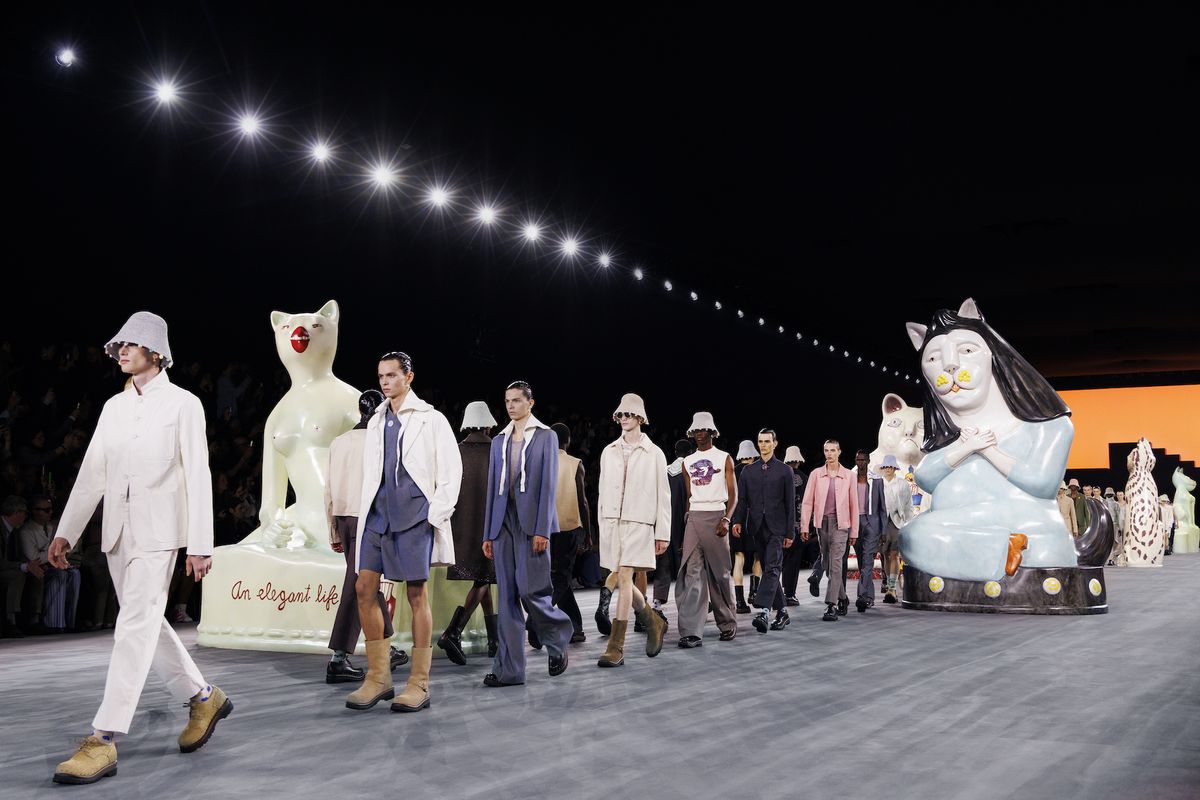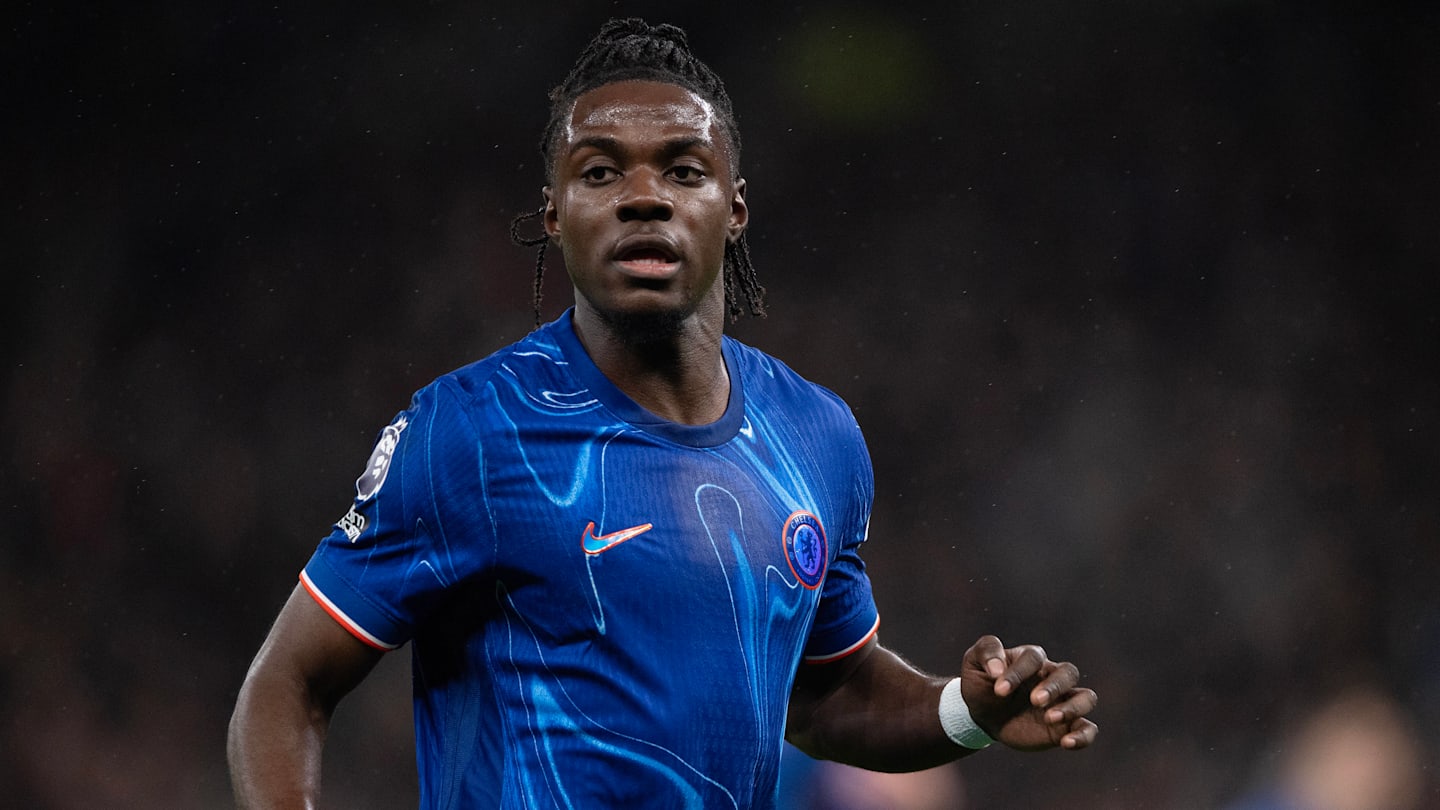Fitness
How Quitting Restrictive Routines Helped Ajahzi Gardner Find Her Voice

Women’s Health’s five Winter Issue cover stars each built a following by forging their own path in the fitness world. Now, they’re co-leading the Women’s Health Flex Challenge, 28 days of workouts you can customize for your unique goals. They’re proof that strength comes in many forms—and they’re here to help you unlock it within yourself. Click here to get started!
Growing up, Ajahzi Gardner was very aware of being the one and only. The only Black girl on the soccer team, the only Black girl on the gymnastics team, the only Black girl on the cheerleading squad, the only curvy, muscular Black girl in competitive all-star cheer. “That played a huge part in my body image,” Ajahzi says.
But none of that stopped her from being the most athletic one out there, doing round-off back handsprings down the basketball court at time-outs. Knowing she looked different was more a self-awareness thing than a cause of self-loathing. “It was an elephant-in-the-room kind of feeling,” she says.
A knee injury in high school and subsequent physical therapy sparked Ajahzi’s desire for a kinesiology degree. In college at the University of Nevada at Reno, her interest in fitness grew, though mostly in order to look good for spring break. “We all had the same fear of the freshman 15,” she says. Ajahzi and her friends spent aimless time in the gym, hopping on and off equipment with no plan.
Her introduction to social media fitness was through petite white influencers who prioritized getting lean. “The fitness community was so new, and it was cool to watch people change their body,” Ajahzi says. Soon, her perception of fitness revolved around caloric expenditure and being in deficit, maintenance, or bulking mode. She bought an influencer’s bikini guide that had a cookie-cutter 1,200-calorie plan and bodyweight plyometric exercises. Ajahzi’s body changed, but “I didn’t feel good,” she says.
Then macro tracking became popular, and Ajahzi went all in, giving up her social life to stay the course. When friends went out, Ajahzi stayed home. “It felt like anything I did outside of my crazy meal plan and training was combative, not conducive, with my goals,” she says. Looking back, she wishes she’d enjoyed herself more but ultimately sees it as part of her path: “I wouldn’t be where I am today without it.”
Strength training came into her world in 2016 via influencer Katy Hearn, who offered eight-week lifting-based challenges. “[There was] a shift in the fitness community where women were getting stronger and building more muscle,” Ajahzi says. She saved up the money she earned working at Lady Foot Locker and began lifting for the first time.
She also started her Instagram page but kept it a secret, blocking her friends. “I wanted a space that was only for fitness,” she says. She originally posted progress pictures and found the vulnerability uncomfortable. But when getting stronger became more of a priority, she took the leap to sharing workout videos. The posts gained traction fast. What started as a page for accountability and community turned into her full-time job.
As her following increased, she got certified as a personal trainer and worked at a local gym. The activewear brand Gymshark noticed her when she had around 12,000 followers, and it offered her an athlete contract. “It was such a stepping stone in my fitness experience,” Ajahzi says. But it also brought back that one-and-only feeling: “I think I was their second, maybe third, Black athlete, and social media was so not diverse at the time. I felt like a token.”
By 2020, Ajahzi had started to find her voice both on social and in real life. Instead of molding herself into the industry ideal, she became active in the Black Lives Matter movement. “That’s really when I turned into such a proud, curvy Black woman,” she says. “I think that was the first time that we were able to stand up and be like, ‘This is what’s happening in our community.’ And that applies to all industries.” Ajahzi also loosened the reins on her strict wellness regime, which crystallized her purpose: “As a woman navigating their relationship with their body, my priority is the balance of finding your fitness and wellness and doing it out of love and care for your body.”
These days, she takes group fitness classes and “bops” in and out of lifts. And the only thing she tracks is her steps. “It’s taken a decade for me to get here, for me to truly separate myself from my body,” she says. “I had to almost let myself go, in a sense, to rebuild that relationship with myself.” This is also the reason her app, Project Soul, changed from subscription-based programming to one-on-one coaching. She channels her hard-won life lessons from being the one and only into real connections. “There’s so much power in my individuality,” she says. “I can help so many other people, even though I didn’t have that representation for myself.”
Ajahzi is proud to evolve, to notice the changes and be grateful for it all. “Every single aspect of my journey…led me to this point,” she says. “People see you through every season.” In fact, the in-between moments of evolution are often where the magic happens.
Do A Gut Check “It’s okay to still have aesthetic goals,” says Ajahzi. “But you have to be rooted in your health and your self-love and your self-care and wanting to do it in the most healthy, sustainable way.”
Photographs by Kimber Capriotti. Styled by Kristen Saladino. Hair and makeup: Kristen Pulice. Set design: Cate Geiger Kalus. Production: Wonder Partners.
On Ajahzi (lead image): Solid & Striped swimsuit; A.Potts coat (tied around waist); Merrell x Sweaty Betty sneakers; Oma the Label earrings; Ariana Boussard-Reifel cuff; DeMarson ring; Diff Eyewear sunglasses.

Abigail Cuffey is the Executive Editor of Women’s Health. Abigail has more than 15 years of editing and writing experience at national publications, with a specific expertise in health and medical journalism. She’s edited award-winning features and packages and is passionate about creating impactful stories that engage and inform the reader. Abigail is also an adjunct professor at New York University, teaching in the masters of publishing program, and has completed 4 marathons and 1 half-ironman.














